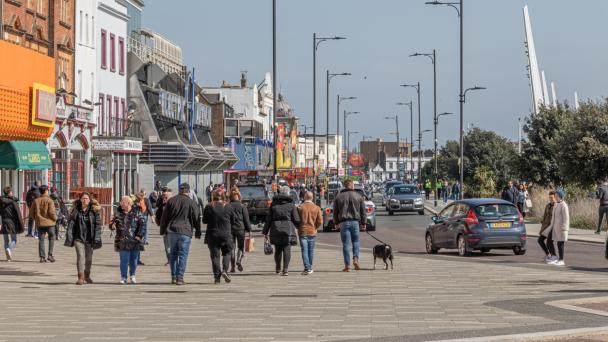Exploring attitudes to local government reorganisation in Essex

Covid-19 is taking social researchers into new territory. With face-to-face fieldwork paused, researchers have been left to explore how else (if at all) they can continue existing studies. The pandemic also poses a particularly tricky question of how findings from research designed for pre-Covid-19 society should be interpreted in what will be very different future realities.
Both of these have been ‘live considerations’ in our Defra-funded programme Citizen Engagement on the Environment. Led by NatCen in partnership with six other specialist organisations, this innovative two-year project (2018-2020) aims to improve understanding of what people value in the environment and their priorities for it. It is intended to inform implementation of the 25-Year Environment Plan (25YEP) and Natural England’s goal to connect people with nature.
Nearly two-thirds of the way through our project, we have so far engaged nearly 1000 people in two different types of fieldwork. This has included large scale public events (distributed dialogues) as well as more in-depth weekend long events (public dialogues) in different locations across England.
Social distancing measures were introduced in March, part-way through our programme of public dialogues. Up until this point we had delivered three weekend long events with 30 members of the public and a range of expert informants in each. We had planned for a fourth event in Kendal which we had to cancel and a final day long summit that would bring together a selection of participants from these workshops with policy stakeholders. While we had finished the first stage of our distributed dialogues by this time, a second round of distributed dialogues (large scale events and gatherings) was also planned to commence in April/May. The aim of these remaining events were:
We took the decision to move our remaining fieldwork for both these approaches online. Based on our previous experience at NatCen using online approaches to citizen engagement, and thanks to the creativity of our partners, we are confident in making use of these techniques to continue our enquiry.
Doing so has meant we have moved the timetable of some of our activity around and planned the following responses to the remaining delivery:

The public dialogue workshop has now taken place using Zoom. This is a platform many of the team are familiar with and it enables staff to use a range of settings that create good conditions for dialogue and enable an appropriate and secure experience.
For the distributed dialogues, our three expert partners will use their networks and social media channels to engage people. One potential limitation of having to adapt from public events in this way is the possible bias towards people participating who have access to the right technology. Here, partners can also think about mobilising people in offline networks through direct invitations to try and diversify responses.
Despite these challenges, these changes offer benefits beyond just being able to continue the project that outweigh some of the limitations.
In both cases, one of these additional benefits is the opportunity to understand people’s priorities and what matters to them in real time – in the context of the current pandemic. This is an issue facing most of us in delivery of our research currently and we think it’s important to find ways to adapt our enquiry accordingly, not least in terms of being able to develop relevant findings. It is also the case that how people might be thinking about, experiencing or relating to their environment – particularly natural, outdoor and green spaces – has become particularly pertinent whilst the country has been subject to lockdown.
How we do this when exploring what matters to people about the environment is an ongoing discussion. However, as researchers we can bring real-time insight as well as longer term considerations to the fore to help inform policy-makers – in this case, how policy can be created and adapted to support delivery of the 25-Year Environmental Plan.
Receive a regular update, sent directly to your inbox, with a summary of our current events, research, blogs and comment.
Subscribe